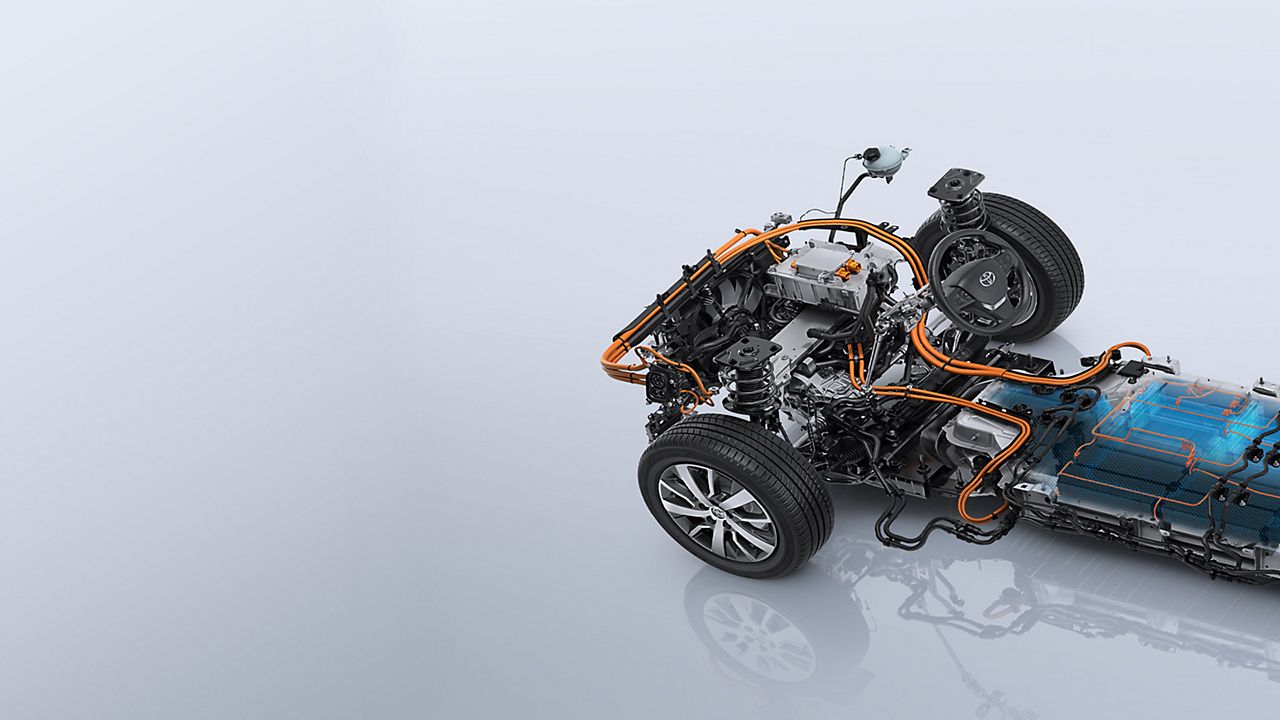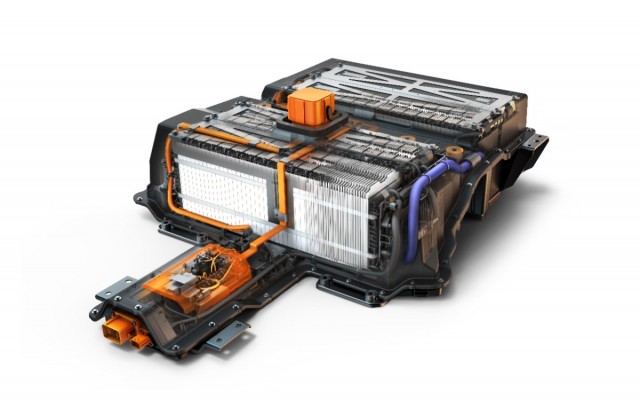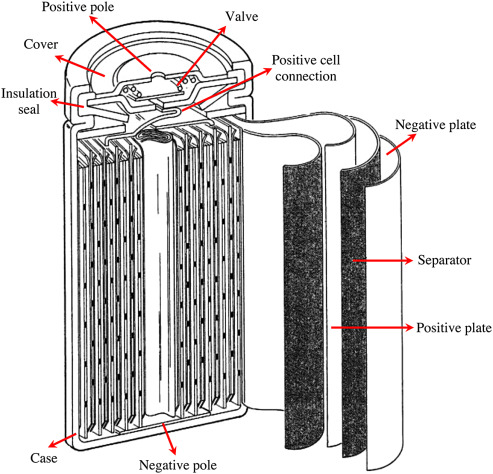Electric Car Nickel-Metal Hydride Battery Technology : Nickel-metal hydride (NiMH) batteries power many electric vehicles due to their reliability and energy efficiency. They offer a good balance between cost and performance.
NiMH battery technology has been a staple in the electric vehicle industry. These batteries are known for their durability and ability to handle high energy loads. NiMH batteries also come with safety benefits, as they are less prone to overheating compared to other types of batteries.
Their long cycle life and moderate cost make them an attractive option for many car manufacturers. Despite being overshadowed by lithium-ion batteries in recent years, NiMH technology remains relevant. It still powers many hybrid electric vehicles and continues to be a reliable choice for sustainable transportation.

Credit: www.sciencedirect.com
Introduction To Nickel-metal Hydride Batteries
Nickel-Metal Hydride (NiMH) batteries play a crucial role in electric cars. They provide a reliable and safe energy source. NiMH batteries are known for their long cycle life and environmental benefits.
Early Development
NiMH batteries were developed in the late 20th century. They emerged as an improvement over nickel-cadmium batteries. Researchers aimed to create a more efficient and eco-friendly option.
These batteries quickly gained popularity. They were initially used in hybrid electric vehicles (HEVs). The first commercially successful NiMH battery was released in the 1990s.
Core Characteristics
NiMH batteries have several key features. They offer high energy density and good cycle life. They are also less toxic compared to other battery types.
- Energy Density: NiMH batteries store a lot of energy in a small space.
- Cycle Life: They can be recharged many times without losing capacity.
- Environmental Impact: NiMH batteries are more eco-friendly than nickel-cadmium batteries.
Below is a table summarizing the core characteristics:
| Characteristic | Details |
|---|---|
| Energy Density | High |
| Cycle Life | Long |
| Environmental Impact | Low Toxicity |
Advantages Over Traditional Batteries
Electric car nickel-metal hydride (NiMH) batteries offer numerous advantages over traditional batteries. This section explores key benefits including energy density and longevity.
Energy Density
NiMH batteries provide higher energy density than lead-acid batteries. This means they can store more energy in the same space. Electric cars with NiMH batteries can travel longer distances on a single charge.
Higher energy density also results in better performance. Cars accelerate faster and handle better. NiMH batteries are lighter, reducing the car’s weight.
| Battery Type | Energy Density (Wh/kg) |
|---|---|
| Lead-Acid | 30-50 |
| NiMH | 60-120 |
Longevity
NiMH batteries have a longer lifespan than traditional batteries. They can handle more charge and discharge cycles. This results in fewer replacements and lower costs over time.
Longer lifespan means better sustainability. NiMH batteries are more environmentally friendly. They reduce waste and the need for new materials.
- Longer lifespan
- More charge cycles
- Lower replacement costs
- Better for the environment
Environmental Impact
Electric cars with Nickel-Metal Hydride (NiMH) batteries offer significant environmental benefits. They help reduce greenhouse gas emissions and reliance on fossil fuels. This section discusses their impact on sustainability and recycling.
Sustainability
NiMH batteries are more sustainable than traditional lead-acid batteries. They use materials that are less harmful to the environment. Their longer lifespan reduces waste and resource depletion.
These batteries also support the use of renewable energy sources. They can store energy from solar and wind power. This helps in reducing the carbon footprint.
Electric cars with NiMH batteries have lower emissions. They produce fewer pollutants compared to gasoline vehicles.
Recycling Processes
Recycling of NiMH batteries is crucial for minimizing environmental impact. Many components can be reused, reducing the need for new materials.
The recycling process involves several steps:
- Collection and transportation of used batteries.
- Sorting and dismantling the battery components.
- Extracting valuable metals like nickel and rare earth elements.
- Processing and purifying the extracted materials.
- Reusing the purified materials for new batteries.
Recycling reduces waste and pollution. It conserves natural resources and lowers the environmental footprint.
Governments and manufacturers are promoting battery recycling programs. These programs ensure safe and efficient recycling.
Here is a quick comparison of the benefits of recycling NiMH batteries:
| Benefit | Description |
|---|---|
| Resource Conservation | Reduces the need for new raw materials. |
| Pollution Reduction | Minimizes waste and environmental contamination. |
| Energy Savings | Lowers energy consumption in manufacturing new batteries. |
| Economic Benefits | Creates jobs in the recycling industry. |
Performance In Electric Vehicles
Nickel-Metal Hydride (NiMH) batteries offer many benefits to electric vehicles. Their performance makes them a strong choice for sustainable transportation. This section will explore their range improvement and charging efficiency.
Range Improvement
NiMH batteries provide a longer driving range for electric vehicles. They have a high energy density, which means they can store more energy in a small space.
Drivers benefit from fewer charging stops. This makes long journeys more convenient. NiMH batteries also maintain their capacity over many charge cycles. This ensures a consistent range over time.
Here is a table showing the range improvement in electric vehicles:
| Vehicle Model | Range with NiMH Battery (miles) | Range with Lead-Acid Battery (miles) |
|---|---|---|
| Model A | 200 | 100 |
| Model B | 250 | 150 |
Charging Efficiency
Charging efficiency is another strength of NiMH batteries. They charge faster than many other battery types. This reduces downtime for electric vehicle users. NiMH batteries also have a high charge acceptance rate. This means they can absorb more power during charging.
NiMH batteries are less affected by temperature changes. This ensures reliable charging in various conditions. Below is a list of benefits related to charging efficiency:
- Fast charging times
- High charge acceptance rate
- Consistent performance in different temperatures
With these features, NiMH batteries enhance the overall performance of electric vehicles. Their ability to improve range and charging efficiency makes them a valuable choice for modern transportation solutions.
Comparing Nimh With Lithium-ion
Electric cars use two main types of batteries: Nickel-Metal Hydride (NiMH) and Lithium-Ion (Li-ion). Both have their pros and cons. Understanding these differences helps in making better choices.
Cost Analysis
NiMH batteries are generally cheaper to produce. This makes them a cost-effective option for budget-conscious consumers.
Lithium-Ion batteries, on the other hand, are more expensive. They cost more due to their advanced technology and higher efficiency.
Here’s a quick comparison:
| Battery Type | Cost per kWh |
|---|---|
| NiMH | $200 |
| Lithium-Ion | $300 |
Safety Considerations
NiMH batteries are known for their safety. They are less likely to overheat or catch fire.
Lithium-Ion batteries can be more volatile. They require more safety mechanisms to prevent overheating.
Safety features to consider:
- Thermal management systems
- Battery management systems
- Overcharge protection
Both NiMH and Lithium-Ion batteries have their own benefits. Cost and safety are key factors to consider. Choose wisely based on your needs and budget.
Challenges And Limitations
Electric car nickel-metal hydride (NiMH) battery technology has been around for a while. Despite its advantages, it faces several challenges and limitations. Understanding these issues helps in making informed decisions.
Weight Issues
NiMH batteries are heavy compared to other battery types. This added weight can impact the overall performance of the electric car. Heavier batteries mean the car needs more energy to move. This can reduce the driving range.
Below is a comparison table of battery weights:
| Battery Type | Weight (kg) |
|---|---|
| Nickel-Metal Hydride (NiMH) | 40 |
| Lithium-Ion | 25 |
Temperature Sensitivity
NiMH batteries are sensitive to temperature changes. They work best in moderate climates. In very cold or hot weather, their performance can drop.
- Cold temperatures can reduce battery efficiency.
- Hot temperatures can cause battery overheating.
Here are some recommended temperature ranges:
- Optimal: 20°C – 25°C
- Acceptable: 10°C – 30°C
- Risk: Below 0°C or above 35°C
These temperature limitations can affect your daily driving experience. Knowing these limitations is important for optimal performance.
Recent Technological Advances
Recent technological advances in electric car batteries have been remarkable. Nickel-Metal Hydride (NiMH) batteries have especially seen significant progress. These advances enhance efficiency, safety, and longevity. Below, we explore two key areas: Material Innovations and Battery Management Systems.
Material Innovations
New materials have improved NiMH batteries significantly. Engineers have developed stronger and lighter materials. These materials increase the battery’s energy density. Higher energy density means longer driving ranges for electric cars.
Researchers have also found ways to reduce the degradation of battery materials. This extends the battery’s life. New coatings protect the battery from wear and tear. These coatings are made from advanced polymers and ceramics.
| Material | Benefit |
|---|---|
| Advanced Polymers | Protection and durability |
| Ceramic Coatings | Increased lifespan |
Battery Management Systems
Battery Management Systems (BMS) are crucial for NiMH batteries. BMS ensures the battery operates safely and efficiently. Modern BMS can monitor and control the battery in real-time.
New algorithms have been developed for BMS. These algorithms improve the battery’s performance. They optimize charging and discharging cycles. This helps in maintaining the battery’s health over time.
BMS also plays a role in safety. It can detect and prevent potential issues. If a problem is detected, the BMS can shut down the battery. This prevents accidents and enhances safety.
- Real-time monitoring
- Optimized charging cycles
- Enhanced safety features
The combination of material innovations and advanced BMS makes NiMH batteries a strong choice. They offer better performance, longer life, and greater safety for electric cars.

Credit: www.toyota-europe.com
Future Prospects
The future of Nickel-Metal Hydride (NiMH) batteries in electric cars looks promising. With advancements in technology, NiMH batteries could see significant improvements. This section explores the potential future prospects in terms of market trends and potential developments.
Market Trends
Electric cars are becoming more popular. The demand for efficient batteries is growing. NiMH batteries are safe and reliable, making them a strong contender.
- Increased Adoption: Many car manufacturers are adopting NiMH batteries.
- Longer Lifespan: NiMH batteries offer a longer lifespan compared to other types.
- Environmental Benefits: They are more environmentally friendly.
The market for NiMH batteries is expanding rapidly. This is due to their numerous advantages. They are a key component in hybrid vehicles. Their popularity will likely continue to grow.
Potential Developments
Exciting developments are on the horizon for NiMH batteries. Scientists are working on improving their efficiency.
- Higher Energy Density: Efforts to increase energy density are underway.
- Cost Reduction: Manufacturing costs are expected to decrease.
- Enhanced Safety: Safety features are continually being improved.
New materials and designs are being explored. These could lead to better performance. NiMH batteries may soon charge faster and last longer. The future looks bright for this technology.

Credit: www.greencarreports.com
Frequently Asked Questions
Why Don’t We Use Nimh Batteries In Fully Electric Cars?
NiMH batteries are heavier and less efficient than lithium-ion batteries. They have lower energy density and shorter lifespan. Lithium-ion batteries offer better performance, range, and charging speed, making them ideal for electric cars.
What Are The Drawbacks Of A Nimh Battery?
NiMH batteries have a shorter lifespan compared to other types. They also suffer from self-discharge and memory effect. These batteries need regular recharging and maintenance. Higher temperatures can reduce their efficiency. They are heavier and bulkier than lithium-ion batteries.
What Is The Problem With Nickel-metal Hydride Batteries?
Nickel-metal hydride batteries have lower energy density compared to lithium-ion batteries. They also suffer from memory effect and self-discharge issues.
Is Nimh Better Than Lithium?
Lithium batteries are lighter, charge faster, and have a longer lifespan compared to NiMH batteries. NiMH batteries are cheaper and safer. Choosing the best depends on your specific needs.
What Is A Nickel-metal Hydride Battery?
A Nickel-Metal Hydride (NiMH) battery is a rechargeable battery commonly used in electric cars.
Conclusion
Nickel-Metal Hydride batteries power many electric cars. They offer reliability, longer life, and environmental benefits. As technology advances, these batteries will likely improve. Future innovations may lead to even greater efficiency. Embracing this technology can drive sustainable transportation forward. Stay informed about ongoing developments in electric car batteries.
